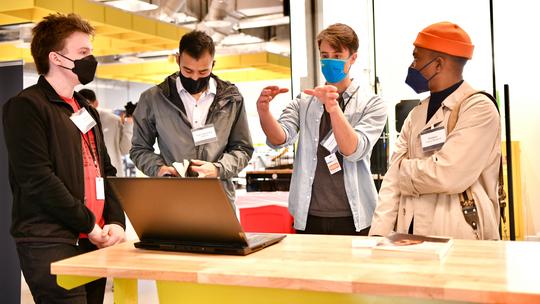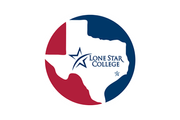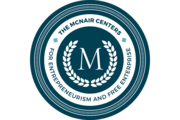
For any entrepreneur, seasoned or new, there is a myriad of advice out there on how to run a successful business. However, without guidance or help, an entrepreneur's journey can be daunting and overwhelming, given the surplus amount of information out there.
One path an entrepreneur can take to resolve these challenges is applying for an accelerator or incubator program. Both accelerators and incubators can not only help new startup companies get off the ground but also support established entrepreneurs who are trying to enter into new markets. However, before jumping into a program, it is beneficial to understand an accelerator and incubators' unique benefits to assess which is right for an early-stage business.
What is an accelerator?
The Harvard Business Review defines an accelerator as “supporting early-stage, growth-driven companies through education, mentorship, and financing.” Startups enter accelerators for a fixed period of time (for example, three- or six-month programs) and as part of a cohort, which is a group of participants, with other like-minded companies at similar growth stages.
An accelerator program provides an immersive education aimed at accelerating the life cycle of innovative companies. Often paired with mentors from the accelerator’s network, an accelerator’s goal is to compress years of learning into just a few months. To be accepted into an accelerator program, startups typically need to have demonstrated fast growth and hold a minimum viable product.
A list of questions you should ask when considering an accelerator includes:
- What other successful companies have also been through this program?
- When is the right time for my startup to join an accelerator?
- Do I need seed investment? How much do I need, and what do I intend to use the funds for?
- Does this accelerator match the investor type for my startup?
An example of an accelerator in Houston is the Accelerator Hub at The Ion, which holds four accelerator programs focused on various industries such as smart city technology, aerospace, and clean energy. The Accelerator Hub offers an immersive education and a plethora of resources to help startups and entrepreneurs further grow and develop their business. Resources include mentor office hours, private networking events, one-on-one pitch coaching sessions, and workshops.
What is an incubator?
As defined by the Merriam-Webster Dictionary, an incubator is “an organization or place that aids the development of new business ventures especially by providing low-cost commercial space, management assistance, or shared services.” In contrast to an accelerator, an incubator does not have a fixed cohort length. Incubators instead offer an ongoing support system of coaching and connections as entrepreneurs enter the beginning stages of building their company.
Typically, these startups possess an idea to bring to the marketplace but do not have a business model or direction to transition from innovative ideas to reality. As a result, incubator participants typically spend most of their time networking with like-minded peers and seasoned entrepreneurs, continuing to flesh out their ideas.
A list of questions you should ask when considering an incubator includes:
- What kind of mentors do they have in their network?
- What is its record of client success to date?
- What does their membership look like? What amenities do they provide?
- How much ownership, if any, will the incubator have in my startup?
An example of a well-known incubator in Houston is Greentown Labs, the largest cleantech incubator in the U.S. Greentown Labs Houston’s incubator offers startups access to its entrepreneur network and greater technology community, as well as physical spaces like a prototyping lab, offices, and community spaces.
How to get involved with The Ion Accelerator Hub
There are many programs in Houston that entrepreneurs can get involved with. For example, The Ion Accelerator Hub offers four different programs that allow entrepreneurs to get back to the basics of learning from those who have experienced success and failure. A few upcoming programs within The Ion Accelerator Hub include:
- The Ion Smart and Resilient Cities Accelerator (ISRCA), created in partnership with the city of Houston, supports startups working on smart city solutions that align with the Resilient Houston Strategy and Climate Action Plan. The program's goal is to build a safer, smarter, and more accessible city. For our latest cohort, we are casting a wide net for entrepreneurs focused on smart cities technology.
- The Aerospace Innovation Accelerator for Minority Business Enterprises (AIA for MBEs) offers networking and outreach events, education and training, and an accelerator program geared towards MBEs tackling aerospace-related challenges. Interested entrepreneurs must identify as an MBE and focus on industries such as engineering, construction, robotics, medicine, health support systems, or additive manufacturing.
- The DivInc Accelerator transforms the existing entrepreneur tech ecosystem into a more authentically inclusive environment. Through their efforts, they inspire, empower and enable underrepresented founders to build successful high-growth businesses. Through their 12-week accelerator program, participants will get connected to an extensive network of mentors and investors and be provided the critical resources needed to turn an idea into a thriving company.
- The Rice Alliance Clean Energy Accelerator is a 12-week program to support early-stage energy startups from around the world, all of which have access to the Rice Alliance network of energy corporations, investors, and advisers. Rice Alliance leverages existing relationships with energy corporations and investors, as well as its experiences from the Rice Business Plan Competition, energy tech venture forums, and the Rice University OwlSpark accelerator. With a community of entrepreneurs and investors, the accelerator is a commitment to expanding the impact and continuing to support society’s transition to clean energy.
To learn more, visit www.ionhouston.com/accelerators/ and to apply for our upcoming accelerator cohorts, visit this link here.

